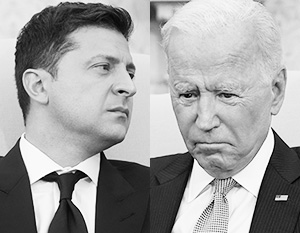Even with US Military Help, Taiwan Will Go Down in Flames
The first part of the report discusses three scenarios of the Chinese Communist Party's use of force against Taiwan. One: The CCP attacks the islands of Taiwan. Two: The CCP imposes a quarantine on Taiwan's air and sea traffic, such as declaring that Taiwan's air and sea space are under Chinese sovereignty and requiring vessels and aircraft entering and leaving the air and sea space to undergo inspection at CCP coastal ports or airports. Three: The CCP directly invades Taiwan's main island. The report argues that Taiwan currently does not possess sufficient defense capabilities, and that therefore must implement a five-year national defense enhancement plan and revise its military recruitment system.
The second part of the report presents a strategy for the U.S. for responding to the Taiwan conflict. This strategy consists of three parts. One: If the CCP isolates, encircles and attacks Taiwan, the United States should immediately deliver weapons and supplies to Taiwan. If the CCP attacks these ships and even causes casualties, the CCP will be asked to take responsibility. Two: The United States can immediately freeze the CCP's assets in the United States and cut off any economic and financial exchanges with the CCP. The report argues that the CCP will retaliate in equal measure, which would trigger a serious financial and economic crisis that would affect the entire world. Three: The United States should immediately enter a national state of military mobilization.
The report emphasizes two points in particular. First, the U.S. will limit the Taiwan Strait crisis to a local war. Unless the CCP attacks the U.S. mainland, the U.S. will not attack mainland China in order to avoid an expansion into a general war. Second, the U.S. should begin high-level talks with the CCP as soon as possible to inform the CCP of the U.S. position, so that the CCP can fully understand it and the worst outcome could be avoided.
I have some thoughts and suggestions in regard to this report.
First, we must realize that even if the U.S. military defends Taiwan, in order to avoid expanding the war into a full-scale conflict, the U.S. will not take the initiative to attack the mainland (China). Once the war in the Taiwan Strait happens, it will be fought with Taiwan as the main battlefield. Regardless of whether Taiwan can be preserved in the end, Taiwan may end up becoming an island of ruins or a sea of blood. Gen. Douglas MacArthur once quoted a famous saying from Plato about war: "Only the dead have seen the end of war." Must we wait until Taiwan has been plunged into a sea of blood before the nation and the world get to see the end of the war in Taiwan? Today, we cannot ask the our national army to die for our country, and we cannot let Taiwan fall to ruins!
Second, currently the two sides of the Taiwan Strait are on the brink of war, and the government should review and improve the military recruitment system. Many countries today have conscription; Israel has an all-gender conscription system. Former Air Force Deputy Commander Chang Yen-ting recently pointed out that modern warfare is one of technology and information. Even though tens of billions of dollars are spent on advanced weapons every year, how can we achieve any sort of first-class combat capabilities if our soldiers have only four months of military training and are far from being professional enough?
Third, today the conflict between China and the United States is widespread and national sentiments are running high, but if a war breaks out between China and the U.S., the reason should be that the many disputes between the two nations cannot be resolved. We should not wish for Taiwan to become a pretext for either side to use force against the other. As the Western proverb goes, when elephants fight, it is the grass that suffers. We must remember this.


